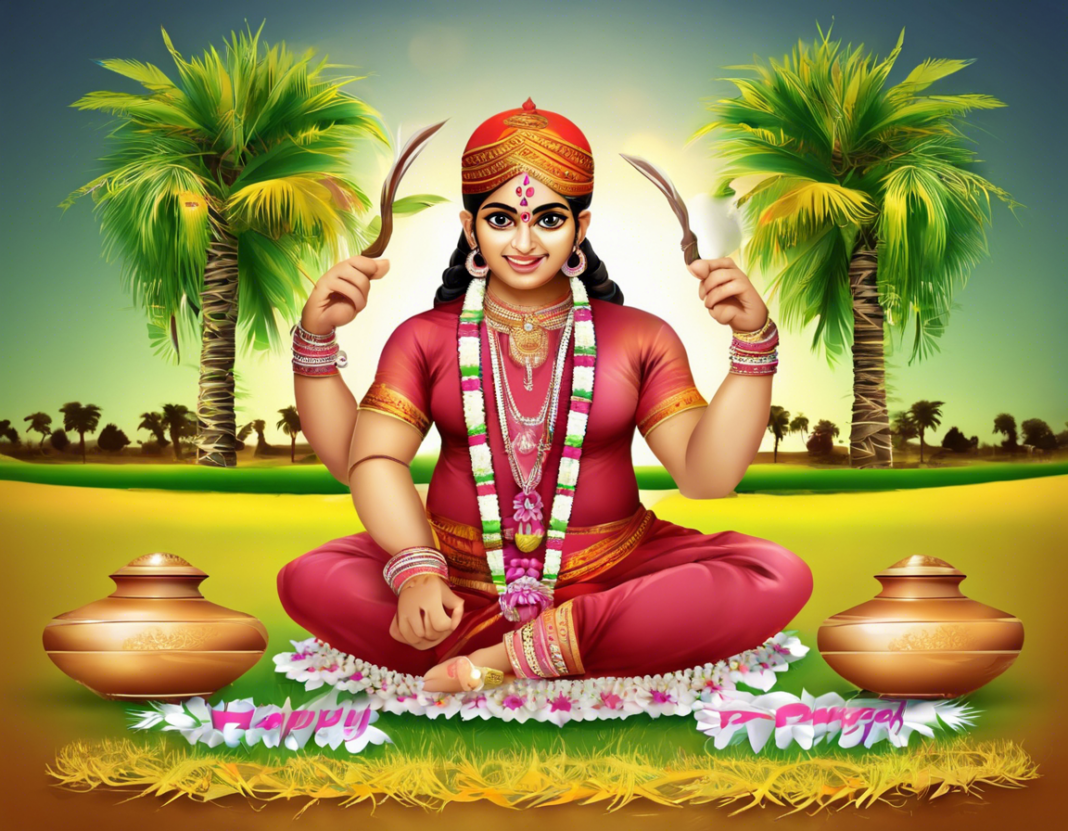The festival of Pongal is an ancient and vibrant tradition celebrated by Tamilians around the world. This four-day harvest festival holds great significance as it marks the beginning of the Tamil calendar and is a time to give thanks to nature for a bountiful harvest. Pongal is typically celebrated from January 13th to January 16th each year, with the main festivities falling on the second day known as Thai Pongal.
During the festival, people come together to honor the Sun God and thank him for providing the energy for agriculture. The name “Pongal” itself refers to the traditional dish made from boiling freshly harvested rice with milk and jaggery in a clay pot until it overflows, symbolizing abundance and prosperity. This sweet dish is offered to the Sun God as a sign of gratitude.
History and Significance of Pongal
Pongal has deep roots in Tamil culture and dates back to ancient times. The festival is said to have been celebrated for over 2000 years, making it one of the oldest surviving traditions in the world. It is mentioned in ancient Tamil literature and inscriptions, highlighting its cultural and historical importance.
The festival is not just about celebrating the harvest but also about expressing gratitude towards nature, animals, and family members. Pongal is a time for family reunions, feasting, and sharing joy with loved ones. It is a time to reflect on the past year, set new goals, and welcome the coming year with positivity and hope.
Four Days of Pongal Celebrations
Day 1: Bhogi Pongal
The first day of Pongal is known as Bhogi Pongal, where people clean and decorate their homes. They gather old and unwanted items and burn them in a bonfire, symbolizing the destruction of the old to make way for the new.
Day 2: Thai Pongal
Thai Pongal is the main day of the festival and is dedicated to the Sun God. People wake up early, take an oil bath, and wear new clothes. They then prepare the traditional Pongal dish, offer it to the Sun God, and share it with family and friends.
Day 3: Maattu Pongal
Maattu Pongal is a day to honor and show gratitude to the cattle for their role in agriculture. Cattle are bathed, decorated with garlands, and fed special treats as a sign of appreciation.
Day 4: Kaanum Pongal
Kaanum Pongal is the final day of the festival where people visit relatives, exchange gifts, and enjoy various recreational activities. It is a time for leisure and relaxation after the hectic celebrations of the previous days.
Traditions and Rituals of Pongal
Pongal is a festival rich in traditions and rituals that have been passed down through generations. Some of the key customs observed during Pongal include:
- Kolam: Intricate designs made with rice flour outside homes to welcome guests and bring good luck.
- Puja: Prayer rituals performed to seek blessings from the Sun God and thank him for a successful harvest.
- Cooking Pongal: The act of cooking the Pongal dish outdoors while the milk is allowed to boil over, symbolizing prosperity.
- Gift-giving: Exchanging gifts with family and friends as a token of love and appreciation.
- Traditional attire: Wearing new clothes, particularly traditional attire, to mark the festive occasion.
Foods Associated with Pongal
Apart from the traditional Pongal dish, several other delicacies are prepared during the festival to indulge in the festivities. Some popular foods associated with Pongal include:
- Sakkarai Pongal: A sweet dish made from rice, jaggery, and ghee, similar to the regular Pongal but with a sweeter taste.
- Vadai: Crispy lentil fritters that are a favorite snack during Pongal celebrations.
- Payasam: A creamy and rich dessert made from milk, rice, sugar, and nuts, enjoyed by people of all ages.
- Murukku: Crunchy rice flour snack shaped like a ribbon, often served as a tea-time treat during Pongal.
Celebrating Pongal Around the World
While Pongal is primarily a Tamil festival, its vibrant celebrations have spread to various parts of the world where Tamil communities reside. Countries like Sri Lanka, Malaysia, Singapore, and the United States see grand Pongal celebrations with traditional rituals, music, dance, and food.
In recent years, Pongal has gained recognition and popularity beyond Tamil Nadu, with people from different cultural backgrounds joining in the festivities to experience the rich traditions and flavors associated with the harvest festival.
FAQs about Pongal
-
What is the origin of Pongal festival?
Pongal has ancient origins dating back over 2000 years and is rooted in Tamil culture as a celebration of the harvest season. -
What is the significance of cooking Pongal outdoors?
Cooking Pongal outdoors and allowing it to boil over symbolizes prosperity and abundance in the coming year. -
How is Pongal celebrated in urban areas?
In urban areas, Pongal is celebrated with traditional rituals, Pongal feasts, cultural events, and community gatherings. -
Are there any specific colors associated with Pongal celebrations?
Yellow and green are considered auspicious colors during Pongal as they symbolize prosperity and new beginnings. -
Is Pongal only celebrated by Tamilians?
While Pongal is a significant festival for Tamilians, people from other communities also participate in the celebrations to experience the rich traditions and flavors of the festival.
In conclusion, Pongal is not just a festival; it is a cultural extravaganza that brings people together to celebrate nature, agriculture, and community spirit. The four days of Pongal are filled with joy, gratitude, and festivities that resonate with the essence of a prosperous and harmonious life. As we gear up to celebrate Pongal this year, let us embrace the traditions, savor the flavors, and cherish the moments with loved ones, marking the beginning of a new year with hope and happiness.

